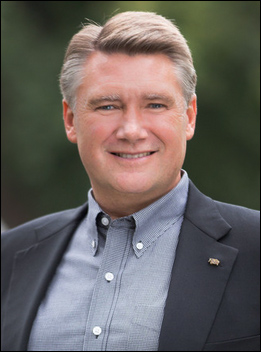By Jim Ellis
Jan. 7, 2019 — When the new House of Representatives convened last week, they did so with only 434 voting members, not 435, as the situation in North Carolina’s 9th District remains unresolved.To recap, Republican Mark Harris scored an apparent 905-vote victory over Democrat Dan McCready on election night, but the results remain uncertified due to what a majority of Board of Elections panel members are citing as voting irregularities in one county. The panel is scheduled to next meet this Friday, Jan. 11th, and organizing a new election is the likely resolution.
Previously, the Board only had the power to order a rerun of the general election. Hence, the subsequent election would have included only Harris, McCready, and Libertarian Jeff Scott. Considering the media hit that Harris has received over the election irregularity controversy, his chances of winning the rerun are slim. (He hired the Red Dome Consulting firm, which contracted with the individual accused of orchestrating the ballot harvesting operation, McCrae Dowless, the vice chairman of the Bladen County Soil and Water Conservation Board.)
Therefore, with Republicans controlling the legislature, they quickly constructed a legislative package that would give Democratic Gov. Roy Cooper largely what he wanted in naming a new Board of Elections panel, while changing the post-election law to allow open primaries. This would give the GOP the opportunity of replacing Harris in the general election.
The legislature quickly passed the reform package at the end of the year with an overwhelming margin, because most Democrats voted for the bill as it included their much-wanted Board of Elections changes. The legislation was sent to Gov. Cooper with veto-proof majorities in both houses.
Despite the compromise language, Cooper initially vetoed the bill. The legislature then again passed the measure with more than two-thirds vote in each chamber to override the governor’s rejection.
Therefore, when the BoE again meets, the members will likely reaffirm their decision not to certify the Nov. 6 results and order a new election — most likely for some time in late February or March, and there will be open primaries for all parties. The schedule will include a run-off calendar if any party fails to produce a first-place candidate who receives at least 40 percent of the vote.
McCready likely will sail through the Democratic side as the consensus candidate, but the Republican contest will now draw competition. It is unclear if Harris will even run. Speculation had been mounting that former Gov. Pat McCrory might enter the race, but he has since dispelled such a move.
The former state chief executive and Charlotte mayor lost his 2016 re-election bid to Cooper, a four-term attorney general, in a close 49.0 – 48.8 percent result, a margin of just 10,277 votes from more than 4.7 million ballots cast.
McCrory did confirm, however, that he is considering again running for governor in 2020 or for US Senate in 2022 should Sen. Richard Burr (R) follow through with statements he made during the 2016 election not to seek a fourth term when his seat next comes in-cycle.
A possible special election candidate is now-former Rep. Bob Pittenger (R-Charlotte), the man Harris defeated in the May 2018 Republican primary. Pittenger was upended in the election cycle just past and made similar claims about vote fraud in Bladen County that he says proved the difference in his primary defeat. But, GOP officials are reportedly looking beyond Pittenger for a fresh candidate.
Ironically, much of the type of activity for which Dowless is accused, in part, is responsible for sweeping Democratic victories in California. But the North Carolina picture becomes darker when finding that Dowless served a previous prison sentence for fraud back in the early 1990s.
Ballot harvesting is the act of becoming an intermediary between the voter and corresponding election officials. In places such as California and Montana, the action has been made legal, but not in North Carolina. It was permissible in Arizona for a time, but a subsequent election reform law ended the practice in that state.
Dowless is accused of organizing a team of people to collect requested absentee ballots directly from voters and return them to the county elections offices. Charges are being made that the Dowless’ crew may not have returned ballots that supported McCready, however, thus adding a much different aspect to this significant controversy.

